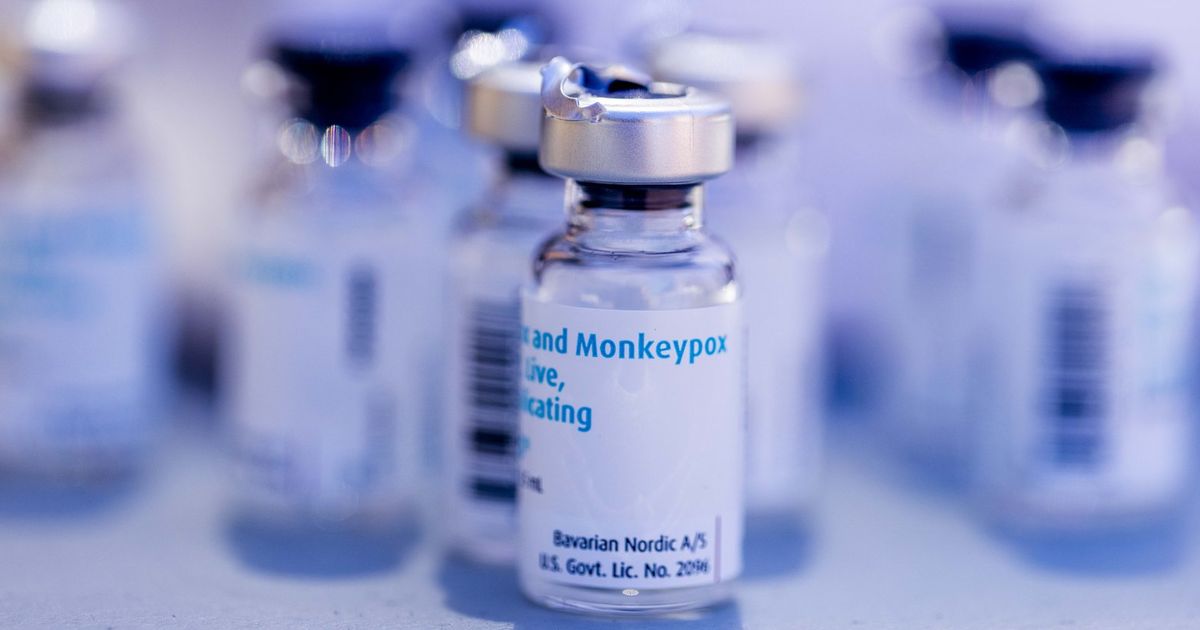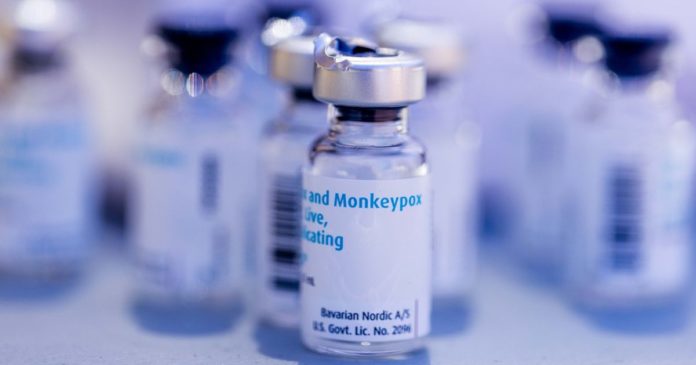
At Seattle Central College on Capitol Hill, a line of more than 200 people snaked Saturday afternoon from the entrance on Broadway and wrapped around the block down Pine Street, all waiting their turn to get vaccinated against the spreading monkeypox virus.
About 300 had already been vaccinated earlier in the day and Dr. Mark Del Beccaro with Public Health – Seattle & King County said the goal was to keep going “till we run out of vaccines.”
The vaccines used for monkeypox — a form of smallpox vaccine — are scarce and only around 570 doses were available. Only those deemed to be at high risk of contracting the virus were allowed to get the shots.
“It’s a relatively new outbreak,” Del Beccaro said. “So the amount of vaccine that’s in the pipeline is not sufficient and it takes awhile to manufacture the amount of vaccine needed.”
He said federal authorities are saying the vaccine supply will “incrementally get better, but it may take several months before it’s significantly better.”
In the meantime, the focus is vaccinating those at highest risk of infection.
The virus is transmitted via intimate contact and the majority of those infected so far have been men who have sex with men, or the partners of such men. Del Beccaro said men in monogamous relationships are not at high risk.
Another vulnerable group are people who inject drugs, especially those who share needles, he said.
The disease causes small skin lesions and may have other health impacts — including breathing or digestive problems — that vary greatly from one person to another depending on how severe the infection and the strength of the person’s immune system, Del Becarro said.
Few sufferers require hospitalization, he said.
For now, vaccination is not recommended for the general public, who are not deemed at high risk.
However, Del Becarro cautioned a possibility remains of eventual wider spread among the general population. He said if the small lesions caused by the virus are open, the disease could be transmitted by skin-to-skin contact that is not intimate sexual behavior.
“It’s too early to know whether that’s going to be a rare event or whether it could become more common,” he said.
The Centers for Disease Control and Prevention has confirmed over 7,500 cases as of Friday in the U.S. The White House has declared monkeypox a public health emergency.
King County as of Friday had 152 confirmed cases, a 52% increase from a week earlier. That jump suggests spread, but also may be due to increased awareness and testing.
Only two or three people have been hospitalized with monkeypox in King County, and none are still in hospital, said Public Health spokesperson Sharon Bogan.
The federal government has so far allocated 9,160 monkeypox vaccine doses to King County, including 4,440 that arrived Friday.
Previous batches have already been distributed to various health care providers and clinics that work with high-risk populations, including the nearly 600 doses at the Seattle Central event.
Ben Meana, operations manager for the community vaccine event, said it was organized after outreach to local community groups including Entre Hermanos, POCAAN and Gay City.
The public health authorities also reached out on social media networks used by men who have sex with men, including Grindr, Scruff and Sniffies, and to the local bathhouses and other public sex venues.
Despite the relative mildness of monkeypox compared to AIDS, Meana said the specter of the AIDS epidemic, which was not aggressively addressed early enough and killed many gay men in the 1980s and ’90s, looms in the minds of that community as monkeypox spreads.
“That is the trauma and the anxiety that the community has,” Meana said. Yet he added that Saturday’s event and the broad outreach to LBGTQ+ organizations has convinced people that this time around “public health is with the community.”
Del Becarro said it’s unlikely monkeypox can be stopped. Instead, the hope is to constrain the spread so the number of people getting it each week starts to decline.
“I don’t think it would be eradicated,” he said. “There are very few viral diseases that have ever been eradicated.”








